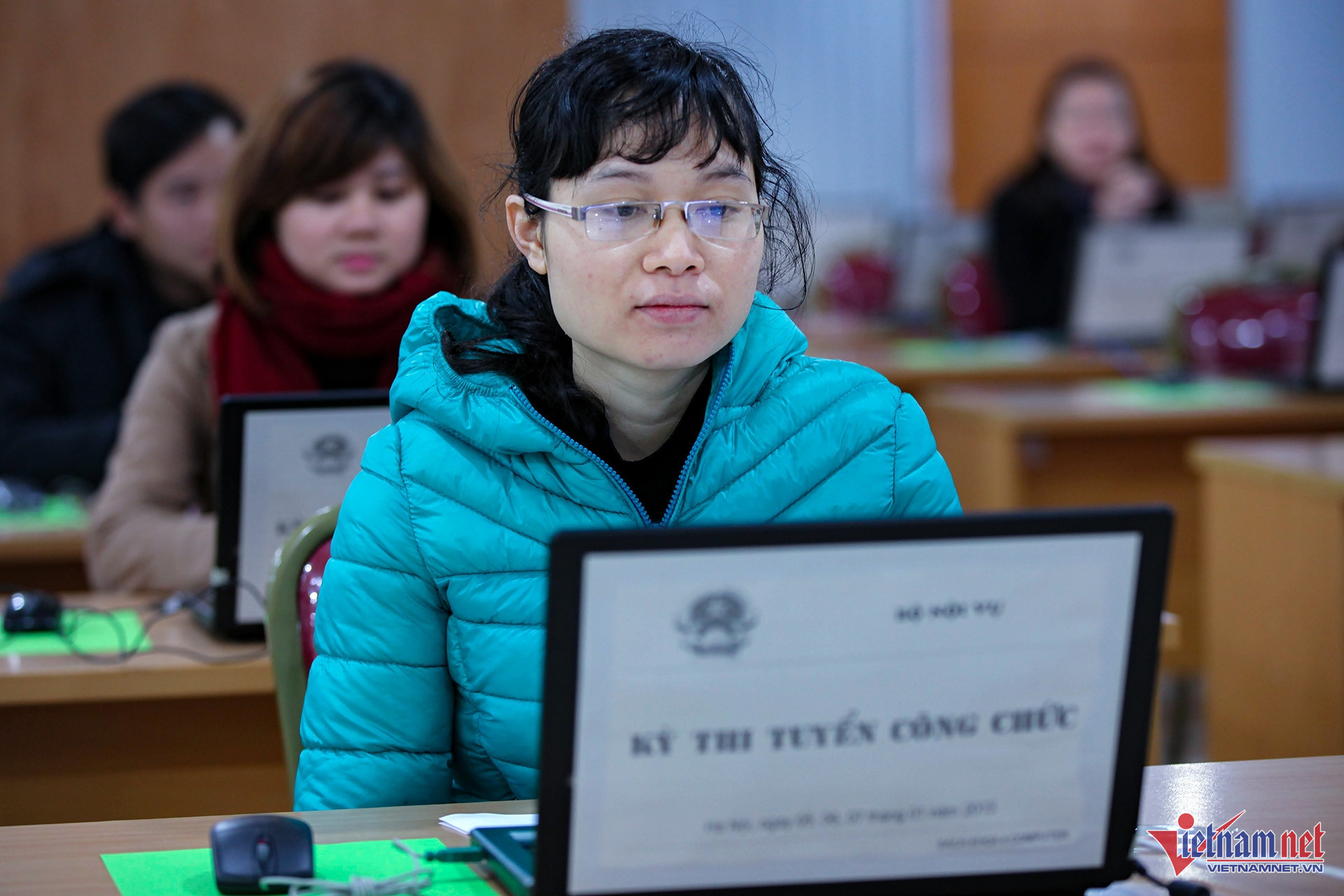
Agencies with few vacancies would handle recruitment internally, while those needing large numbers should hire independent recruitment organizations.
After the administrative restructuring, the number of provinces and cities will drop from 63 to 34, communes from over 10,000 to 5,000, with provincial and district civil servants potentially reassigned to communes. Within five years of reorganization, agencies must streamline and downsize their apparatus.
The ministry also has proposed a unified civil service system from central to local levels, eliminating distinctions between commune and provincial civil servants.
This new policy raises questions about how to recruit and select civil servants to meet emerging job demands.
In drafting amendments to the Civil Servants Law, MHA has studied international recruitment practices and offered proposals.
Merit-based selection favored
Research by the ministry shows that civil service exams in many countries skip general knowledge tests, focusing instead on specific professional exams or interviews tailored to position requirements.
Not all roles demand foreign language skills, but civil servants must commit to using them if needed, with failure impacting performance reviews.
For general knowledge, during probation, civil servants learn about political, administrative, and legal systems from mentors and self-study, which allows to save costs for agencies and effort for candidates.
Regarding recruitment methods, the ministry prioritizes merit-based selection. Agencies with few slots can manage recruitment themselves, while those with large needs should outsource to independent firms.
It also suggests internal recruitment: prioritizing public sector veterans or contract workers, boosting career motivation in civil service.
Countries like Australia, Thailand, and Japan use priority lists—about five top-scoring candidates per vacancy. If the top candidate can’t join due to process violations, qualifications, or health issues, the agency selects the next in line.
These high scorers can also fill equivalent vacancies within the agency, maximizing recruitment results and saving time, effort, and costs.
The ministry believes Vietnam should consider a similar top-five ranked list for backup staffing.
Additionally, Japan and Thailand set probation periods at 3-6 months, freeing time for training, appointments, and seniority tracking.
Currently, civil officers have to undergo a 12-month probation period. The probation often ends with most civil servants passing unless they break law. Therefore, the ministry suggests shortening the period to expedite formal appointments and streamline management.
How to evaluate civil servants?
Except for China, which shares similarities with Vietnam, many countries assess civil servants based on their performance. Assessment results guide rewards and improvements, not hard-to-quantify traits like ideology, ethics, or lifestyle. Breaches of conduct codes trigger discipline instead.
Foreign evaluation methods differ from Vietnam’s. Often, an authority and the civil servant meet privately in a separate room; the civil servant presents results and self-assesses, while the authority evaluates, comments, and probes reasons for underperformance—like health, family issues, or skill gaps—offering solutions.
In Vietnam, evaluations can be formalistic, lenient, or evasive, untied to pay or bonuses. The ministry urges revising rules for objective, transparent, substantive assessments, quantifying results and empowering employers in evaluations.
It advocates one-on-one reviews (just the employer and civil servant), avoiding agency-wide voting that breeds reluctance, formality, and superficiality.
Evaluation outcomes must solely determine appointments, raises, and bonuses for civil servants.
VietNamNet reader Duoc Luong Thanh said that hiring independent agencies for civil servant recruitment is the most accurate approach. With the current method, talented staff sometimes are missed out, with many cases involving favoritism and connections.
He suggests that when merging communes, it would be better to send district-level civil servants who previously once worked at the commune level back to communes. These individuals understand grassroots operations, perform well, and have credibility. Districts should align with provinces before reassignments, making these experienced commune veterans a logical fit.
This is also the time to screen commune-level civil servants. Many currently lack computer skills or expertise in their fields. How how can they handle digital transformation or administrative tasks effectively?
Thus, it is necessary to immediately assess commune civil servants and remove those failing standards now, not delay downsizing over five years at the state’s expense. Doing so will ensure an excellent, efficient apparatus once fully operational.
Anh Pham, who introduced himself as a teacher at a high school in BacNinh, in his email to VietNamNet, while calling the commune-level unit reorganization as a ‘revolution’, stressed that in the new era, full-time university degrees should be a mandatory requirement for recruiting and retaining civil servants.
Thu Hang